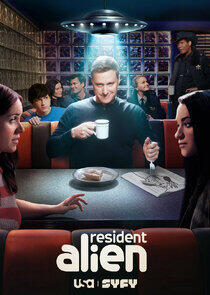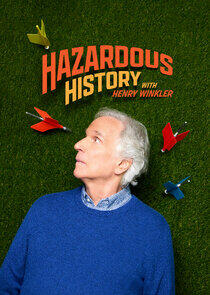
Chuck Jones
Country
GenderMale
Birthday
BiographyCharles Martin Jones (September 21, 1912 – February 22, 2002) was an American animator, painter, voice actor and filmmaker, best known for his work with Warner Bros. Cartoons on the Looney Tunes and Merrie Melodies series of shorts. He wrote, produced, and/or directed many classic animated cartoon shorts starring Bugs Bunny, Daffy Duck, Wile E. Coyote and the Road Runner, Pepé Le Pew, Marvin the Martian, and Porky Pig, among others.
Jones started his career in 1933 alongside Tex Avery, Friz Freleng, Bob Clampett, and Robert McKimson at the Leon Schlesinger Production's Termite Terrace studio, the studio that made Warner Brothers cartoons, where they created and developed the Looney Tunes characters. During the Second World War, Jones directed many of the Private Snafu (1943–1946) shorts which were shown to members of the United States military. After his career at Warner Bros. ended in 1962, Jones started Sib Tower 12 Productions and began producing cartoons for Metro-Goldwyn-Mayer, including a new series of Tom and Jerry shorts (1963–1967) as well as the television adaptations of Dr. Seuss's How the Grinch Stole Christmas! (1966) and Horton Hears a Who! (1970). He later started his own studio, Chuck Jones Enterprises, where he directed and produced the film adaptation of Norton Juster's The Phantom Tollbooth (1970).
Jones's work along with the other animators was showcased in the documentary Bugs Bunny: Superstar (1975). Jones directed the first feature-length animated Looney Tunes compilation film, The Bugs Bunny/Road Runner Movie (1979). In 1990 he wrote his memoir, Chuck Amuck: The Life and Times of an Animated Cartoonist, which was made into a documentary film, Chuck Amuck (1991). He was also profiled in the American Masters documentary Chuck Jones: Extremes & Inbetweens – A Life in Animation (2000) which aired on PBS.
Two Warner Brothers cartoons that Jones directed, For Scent-imental Reasons and So Much for So Little, won Academy Awards for Best Animated Short Film, though at this time it was customary for the statuette to be given to a cartoon's producer, not the director. Jones did not receive a Best Animated Short Film Oscar of his own until winning for The Dot and the Line in 1966. Robin Williams later presented Jones with an Honorary Academy Award in 1996 for his work in the animation industry. Film historian Leonard Maltin has praised Jones's work at Warner Bros., MGM and Chuck Jones Enterprises. In Jerry Beck's 1994 book The 50 Greatest Cartoons, a group of animation professionals ranked What's Opera, Doc? (1957) as the greatest cartoon of all time, with ten of the entries being directed by Jones including Duck Amuck (1953), Duck Dodgers in the 24½th Century (1953), One Froggy Evening (1955), Rabbit of Seville (1950), and Rabbit Seasoning (1952).
Biography from the Wikipedia article Chuck Jones. Licensed under CC-BY-SA. Full list of contributors on Wikipedia.
Jones started his career in 1933 alongside Tex Avery, Friz Freleng, Bob Clampett, and Robert McKimson at the Leon Schlesinger Production's Termite Terrace studio, the studio that made Warner Brothers cartoons, where they created and developed the Looney Tunes characters. During the Second World War, Jones directed many of the Private Snafu (1943–1946) shorts which were shown to members of the United States military. After his career at Warner Bros. ended in 1962, Jones started Sib Tower 12 Productions and began producing cartoons for Metro-Goldwyn-Mayer, including a new series of Tom and Jerry shorts (1963–1967) as well as the television adaptations of Dr. Seuss's How the Grinch Stole Christmas! (1966) and Horton Hears a Who! (1970). He later started his own studio, Chuck Jones Enterprises, where he directed and produced the film adaptation of Norton Juster's The Phantom Tollbooth (1970).
Jones's work along with the other animators was showcased in the documentary Bugs Bunny: Superstar (1975). Jones directed the first feature-length animated Looney Tunes compilation film, The Bugs Bunny/Road Runner Movie (1979). In 1990 he wrote his memoir, Chuck Amuck: The Life and Times of an Animated Cartoonist, which was made into a documentary film, Chuck Amuck (1991). He was also profiled in the American Masters documentary Chuck Jones: Extremes & Inbetweens – A Life in Animation (2000) which aired on PBS.
Two Warner Brothers cartoons that Jones directed, For Scent-imental Reasons and So Much for So Little, won Academy Awards for Best Animated Short Film, though at this time it was customary for the statuette to be given to a cartoon's producer, not the director. Jones did not receive a Best Animated Short Film Oscar of his own until winning for The Dot and the Line in 1966. Robin Williams later presented Jones with an Honorary Academy Award in 1996 for his work in the animation industry. Film historian Leonard Maltin has praised Jones's work at Warner Bros., MGM and Chuck Jones Enterprises. In Jerry Beck's 1994 book The 50 Greatest Cartoons, a group of animation professionals ranked What's Opera, Doc? (1957) as the greatest cartoon of all time, with ten of the entries being directed by Jones including Duck Amuck (1953), Duck Dodgers in the 24½th Century (1953), One Froggy Evening (1955), Rabbit of Seville (1950), and Rabbit Seasoning (1952).
Biography from the Wikipedia article Chuck Jones. Licensed under CC-BY-SA. Full list of contributors on Wikipedia.
Part of Crew
Recently Updated Shows
Recently updated shows that might be of your interest.

Last Week Tonight with John Oliver
On Last Week Tonight with John Oliver, John Oliver presents a satirical look at the week in news, politics and current events.
GenreComedy

Resident Alien
Resident Alien is a dark, twisted and comedic fish-out-of-water story that follows a crash-landed alien named Harry who, after taking on the identity of a small-town Colorado doctor, slowly begins to wrestle with the moral dilemma of his secret mission on Earth — ultimately asking the question, "Are human beings worth saving?"
GenreDrama, Comedy, Science-Fiction



